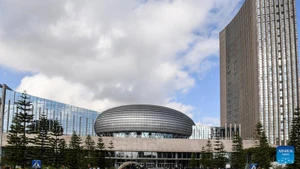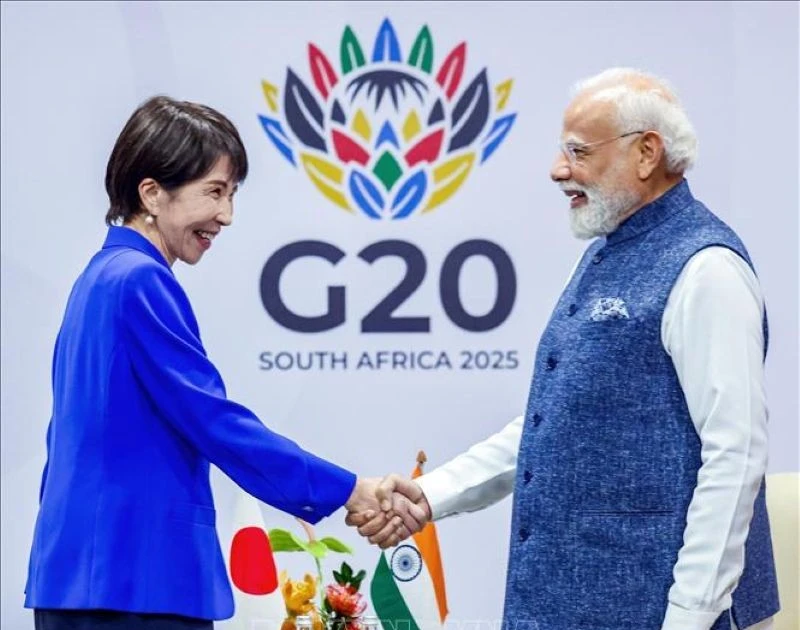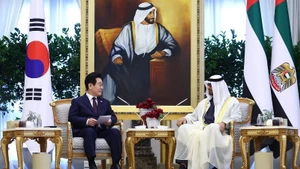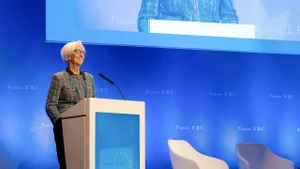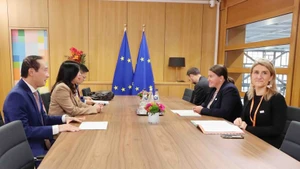In recent years, the e-commerce sector has developed at a galloping pace, much faster than traditional commerce, and has become an inevitable trend of the global economy. The Organisation for Economic Cooperation and Development (OECD) estimates that, with a value of nearly 5,000 billion USD, e-commerce transactions currently account for about 25% of international trade.
However, it is noted that although e-commerce plays an increasingly important role, the world has still yet to develop a common set of rules in this field.
In that context, negotiations to build the first global e-commerce agreement were launched in 2019, attracting the participation of 91 members of the World Trade Organisation (WTO), accounting for more than 90% of global trade.
After 5 years of active negotiations, about 80 countries, including members of the European Union (EU), the UK, China, Canada, Australia, Saudi Arabia, and Japan, have recently reached an agreement on global rules on digital trade.
An important highlight of the agreement is that the participating parties will be exempt from tariffs on cross-border electronic transactions. In addition, the agreement also includes measures on strengthening consumer protection online, digitising customs procedures, recognising electronic signatures, managing cybersecurity risks, and supporting businesses and consumers.
Analysts said that this set of digital trade rules not only facilitates cross-border transactions but also removes barriers and promotes innovation in the field of e-commerce.
Hailing the move as “historic news”, the European Commission (EC) emphasised that the agreement will benefit both consumers and businesses, and support digital transformation among participating WTO members. In addition, it will bolster digital inclusiveness and the economic growth of developing and least developed participating members.
Accordingly, businesses will benefit from a transparent and favourable business environment when legal and tariffs barriers are reduced. Meanwhile, consumers are also better protected in online transactions, helping to increase trust in the digital trade environment, thus opening up opportunities for stronger development of global digital trade
The agreement has received enthusiastic support. Peter Kyle, UK Secretary of State for Science, Innovation and Technology, said the global agreement aims to drive economic growth through the digitalisation of trade, therefore it’s faster and more secure.
Valdis Dombrovskis, EU Executive Vice-President and Commissioner for Trade, stressed that this agreement will contribute to integrating developing and underdeveloped countries into the global digital economy.
“This would be the first ever set of baseline digital trade rules, and it would contribute to the growing e-commerce in our countries,” stated Tan Hung Seng, Singapore's Permanent Representative to the WTO.
The UK said the agreement could increase its Gross Domestic Product (GDP) by 24.2 billion GBP.
This agreement will contribute to integrating developing and underdeveloped countries into the global digital economy.
Valdis Dombrovskis, EU Executive Vice-President and Commissioner for Trade
It is not difficult to explain the strong support from countries for the implementation of a global set of rules on e-commerce, especially when e-commerce is an important pillar for many economies.
However, experts say the road to implementing the agreement is still thorny. To date, some countries that participated in the negotiations have yet to sign the agreement.
The US said that the new text was an important step forward, but that it still fell short and more work was needed. It looks forward to working with interested members in finding solutions to all remaining issues and moving the negotiation towards a timely conclusion.
With nearly 70% of the population having access to the internet, the world is witnessing the explosive growth of e-commerce. In that context, experts expect that the first global agreement on e-commerce will soon be implemented, creating a foundation for this important sector to develop in a sustainable manner, becoming a growth engine of the world economy.










